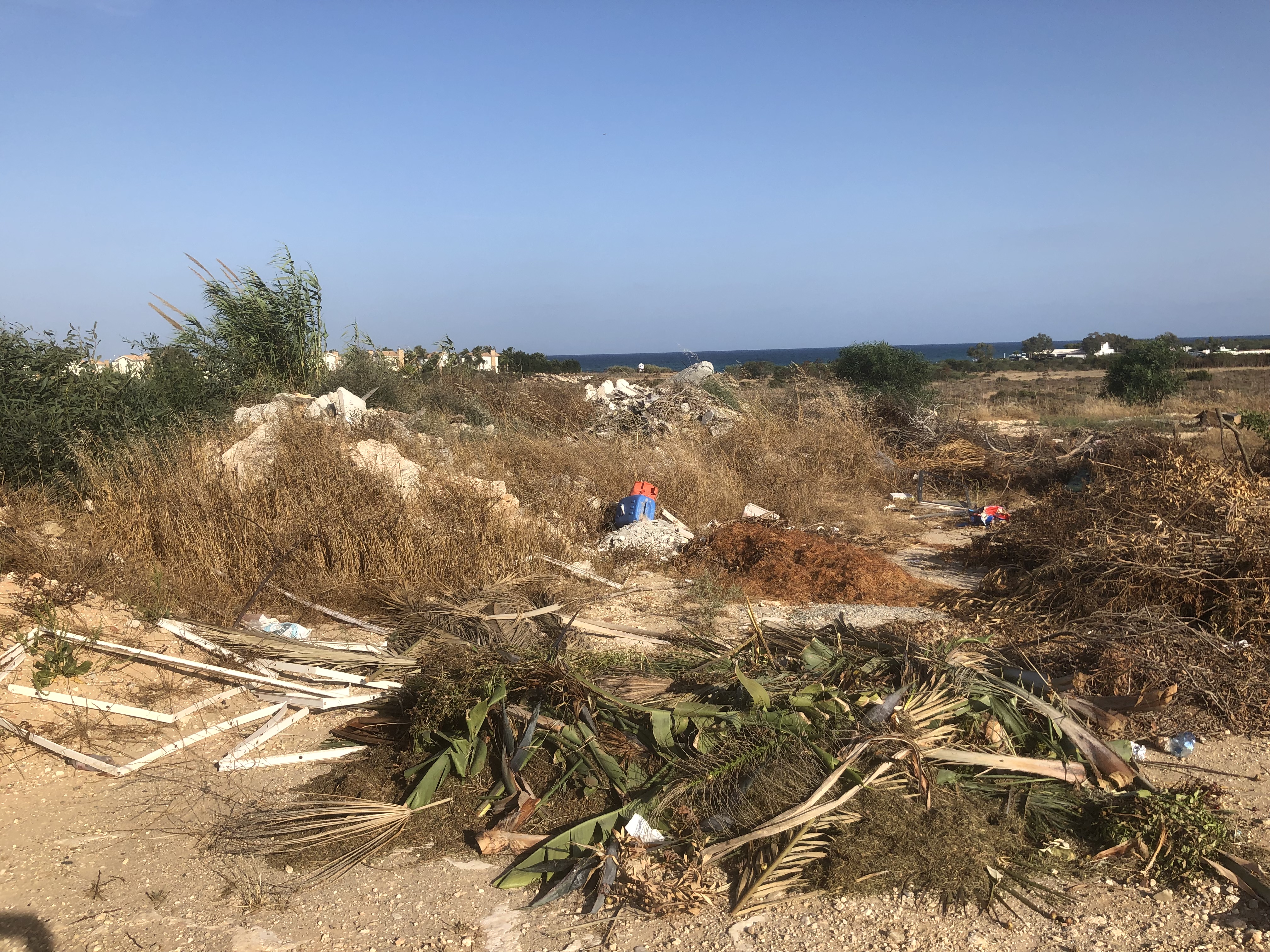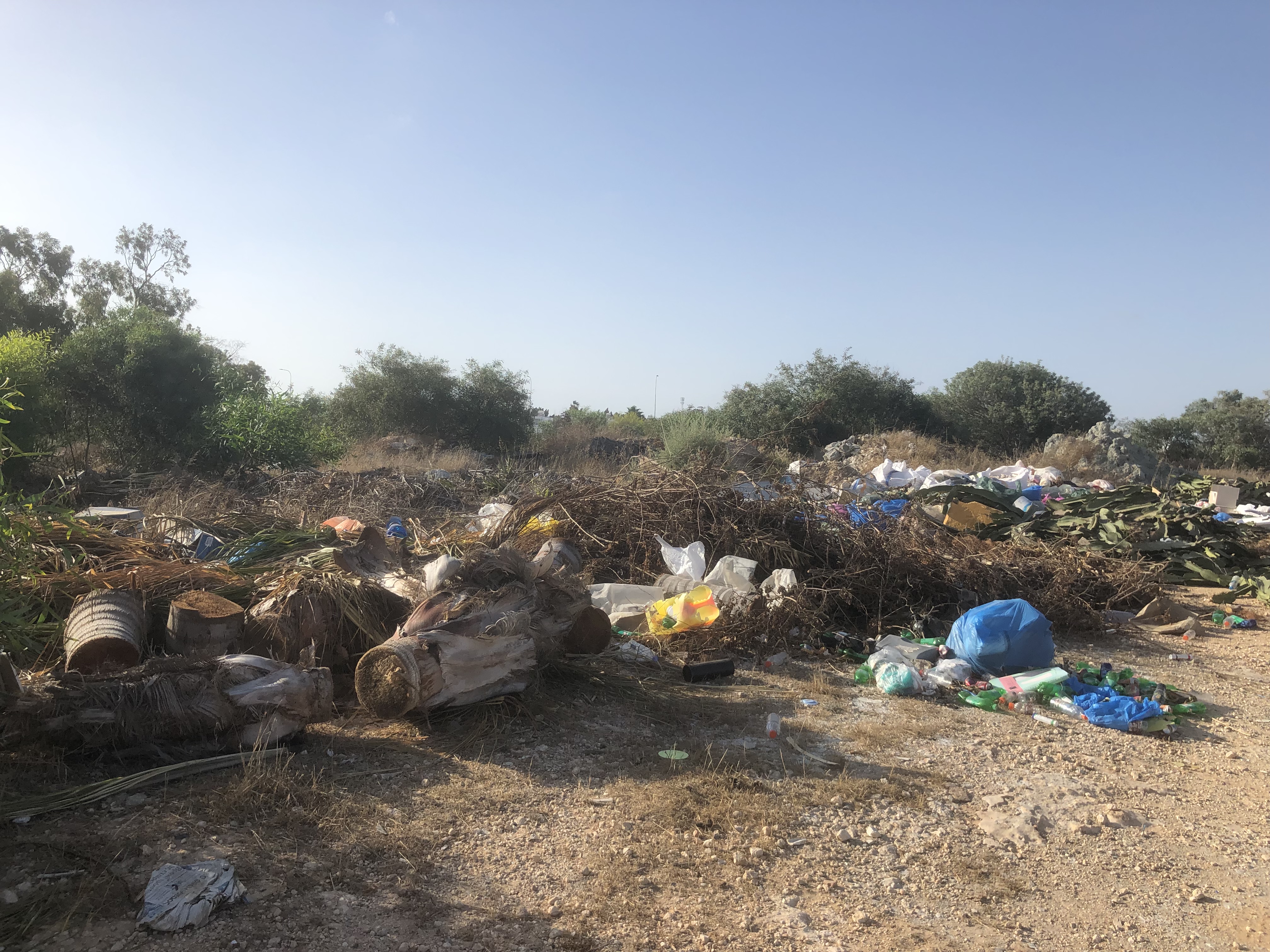Litter piles up at protected nature site
Garbage is piling up on the shores of Potamos Liopetri harbour – degrading a protected nature site and exposing a serious flaw in how Cyprus deals with illegal dumping.
Liopetri beach, with its rocky shores and crystal waters, was once a scene fit for a postcard. But now, this picturesque area is littered with building materials, garden cuttings and empty bottles.
“It was an area of outstanding natural beauty,” one resident said. “It’s really distressing to see how people totally disregard the landscape.”
When garbage began accumulating in the area four or five years ago, it appeared to come from construction companies, who covertly deposited loads of bricks, gravel, and rusted metal on the fields bordering the coast.
The waste now seems to come from individuals as well. Toilets and refrigerators peek out from bushes. Beer bottles and coke cans are everywhere – hidden in the grass, scattered on the sand. A more recent addition was clumps of used toilet paper left behind by campers.
Despite multiple complaints from the Ionion Residents’ Committee, a nearby housing complex, the piles of waste have only grown larger over time.

“We gave all this information to the council, but nothing ever was done about it,” added the resident.
The Liopetri community council claimed to be unaware of the pollution when asked about the site.
“I’m going to send our employee [to the site],” a representative from the council assured. “If the construction area is not clean, I will send someone to clean.”
This pollution is even more troubling given the harbour’s designation under Natura 2000, the EU programme that aims to protect areas of high biodiversity. The Liopetri estuary was deemed a Special Protection Area (SPA) in 2008 due to its importance for 91 species of migratory birds.
EU and Cypriot law mandate the government to “take appropriate steps to avoid pollution or deterioration” in these important ecological zones.
Litter can also become tinder for wildfires. Illegal rubbish dumps contributed to this week’s Paphos fire, which burned through nearly two dozen homes and many square kilometres of farmland. On Wednesday, Agriculture Minister Maria Panayiotou highlighted the need for stricter penalties to enforce anti-dumping regulations.
Enforcement of these laws, however, has otherwise been lacklustre.
Naturally, removing litter from public property is often tricky, and sites within the Natura 2000 network come with extra challenges. This difficulty boils down to the question: who should clean up illegally dumped trash?
On a national level, the Department of Environment is the responsible authority for illegal dumping. Complaints from the public, however, go to local authorities, who oversee removing litter and guarding areas from future dumping. Municipalities can apply for funding from the Department of Environment to support these efforts.
This structure becomes less clear when it comes to Natura 2000 sites. If the illegal dumping involves habitat destruction, as in the case of the Potamos Liopetri harbour, the onus of pollution control falls on the Game and Fauna Service. This agency has an island-wide responsibility for bird protection.
“If the issue involves habitat destruction or habitat deterioration we, the Game & Fauna Dept. are dealing with it, particularly if the activity occurs within a ZEP [SPA] area,” explained a department representative.
But the Game and Fauna Department, despite being responsible for monitoring such sites, was also unaware of the five years’ worth of pollution.
“I am not aware of any notification regarding pollution at the Liopetri ZEP area,” the same representative confirmed.
For the Liopetri harbour, municipality boundaries are also a source of confusion. The protected area sits at the confluence of three municipalities – Xylophagou, Liopetri and Sotira. While the Sotira municipality has posted a sign threatening a €600 fine for illegal dumping, the worst of the pollution falls within Liopetri’s jurisdiction.
Residents submitted complaints to the Sotira council instead of the Liopetri council. This mix-up might explain why the Liopetri community was unaware of the dumping issue.
As a result, waste accumulates – and it’s difficult to know who should clear it. Illegal dumping continues with little resistance or response. “Maybe that’s why nothing’s ever done,” the resident speculated. “Because they just leave it to each other.”
Tired of inaction, locals are now calling for authorities to remove the litter and enforce anti-dumping laws. They have intensified their efforts by taking more photos, sending more emails, and filing more complaints.
All in hopes of saving the shoreline before it becomes a sprawling garbage dump.
“This attitude toward rubbish and dumping has got to stop,” the resident lamented, gesturing at trash bags strewn across a grassy patch. “We only have one planet.”







Click here to change your cookie preferences